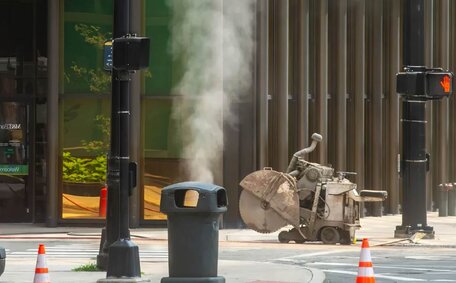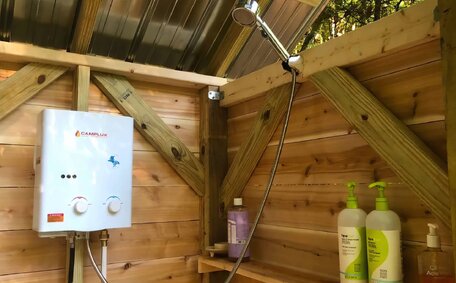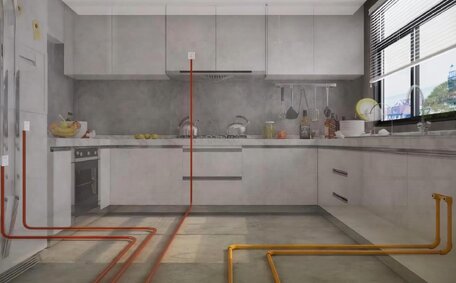
How To Move A Gas Meter
Need your gas meter relocated? You can’t move it yourself - contact your supplier to arrange for a gas engineer to reposition it safely. Charges may apply depending on circumstances.
Read MoreUnderstanding the rights and responsibilities regarding pipe maintenance and repairs is crucial for both landlords and tenants in rental properties. Pipe relining has emerged as a preferred method for both landlords and tenants to restore damaged pipes non-invasively, eliminating the need for major construction.
As experts in the field, we address plumbing issues for both residential tenancies and commercial properties, often asked – who’s responsible for pipe repairs? Understanding the difference between standard wear and tear and negligent damage is crucial. The query arises whether landlords can charge tenants for pipe relining services.
This article will outline the key factors determining liability for pipe repairs in rental properties, including which party does pipe relining.
Maintaining plumbing systems is pivotal, with drain pipe relining emerging as a solution that ensures both landlords and tenants meet their obligations.
Landlords are obligated to maintain and repair commercial pipes and water systems to keep them operational. This includes:
With regard to pipe relining, it is commonly considered vital maintenance, with the responsibility to repair damaged pipes typically falling to the landlord.
Tenants also have a duty to maintain the plumbing systems in good condition. This can involve:
In some cases, standard residential agreements defining your tenancy stipulate that tenants should not damage the property and property owners are responsible for repairing plumbing to keep it in good order. If any disputes about the amount rent contributors owe for damaged pipes or pipe relining arise, factors like cause of damage and lease terms dictate who bears the liability.
Determining fiscal responsibility for pipe repairs or relining involves distinguishing between regular wear and damage caused by the tenant.
However, if negligent behaviour or intentional damage by the tenant is proven, they can be held liable for the resulting or accelerated pipe deterioration, potentially necessitating more invasive methods such as digging and replacing. Examples could include:
Most residential tenancy laws mandate that tenants avoid actions that compromise plumbing efficiency, while landlords are responsible for general upkeep and repairs. If disputes emerge, factors like lease terms, cause of damage and repair costs will determine liability. Financial dialogues can hinge on whether a landlord can prove tenant responsibility for the damage to facilitate reimbursement claims.
It is often challenging to ascertain whether the tenant or landlord is responsible for pipe damage. Complications such as old pipe systems failing from natural wear, tree roots disrupting drains, or harm occurring during vacancy periods all contribute to the complexity of assigning accountability.
A proactive approach entails open dialogue between landlords and tenants, along with professional relining services to evaluate and remedy pre-existing plumbing system wear. Taking dated photos and noting locations of cracks, leaks, clogs or corrosion can help show if damage existed before the tenant moved in.
Both parties should also communicate promptly if new issues emerge, especially where pipe integrity is concerned.
Seeking a professional assessment is recommended when responsibility is unclear, as a plumber can often identify the likely cause and timing of pipe damage. Their inspection reports can serve as impartial evidence for insurance claims or tenancy tribunals if disputes proceed to that stage.
Ultimately, resolving plumbing dilemmas swiftly is vital—so in times of trouble, call us for our pipe relining services, bypassing lengthy disputes over fiscal responsibility, thus saving your business both time and resources. Ideally, landlords and tenants would collaborate, centring their efforts on enduring pipe relining solutions instead of temporary fixes or intrusive construction.
Trenchless pipe relining, which installs a new pipe through a trenchless method, allows existing pipes to be restored around your home without the major disruption of traditional pipe replacement. This process inserts a flexible epoxy resin liner, forming a new pipe inside the old one without the upheaval of excavation, which is then solidified using heat or UV light. The epoxy liner essentially becomes a new pipe within the old, enhancing structural integrity, water flow, and longevity, and is stronger than traditional materials.
For rental properties, pipe relining stands unmatched, offering numerous advantages over the traditional, disruptive and costly methods of digging up pipes for repair or replacement:
That’s why we advocate the use of pipe relining technology at your property, ensuring essential pipe repairs with minimal impact on tenants. The longevity of epoxy also means landlords benefit from a long-term solution that enhances property value and reduces lifetime costs compared to repeated band-aid fixes.
At Menai Plumbing, we are dedicated to restoring thousands of damaged pipes in both residential and commercial properties cleanly and efficiently with our acclaimed pipe relining service in Sydney. If your drains at your rental property are blocked, leaking or root infiltrated, pipe relining could provide an optimal minimally invasive solution.
Preventive maintenance is key in managing pipes in rental properties. As a landlord, implementing some simple preventative measures can help avoid costly emergency plumbing callouts and pipe repairs down the track.
We recommend landlords of residential rental properties follow this basic pipe maintenance routine:
It should always be good practice to educate tenants on the correct use of sinks, toilets, and drains to prevent pipe damage and ensure overall care. Simple tenant guidelines can include:
While pipes inevitably age, regular inspections and maintenance are ideal practices for property owners to safeguard their investment and prevent tenant issues when emergency repairs later arise.
Many disputes over the costs of pipe repairs or relining between tenants and landlords can often be resolved with frank discussion and mutual respect.
As a first step, both parties should refer back to your tenancy agreement and carefully review responsibilities outlined for the pipes property maintenance. If ambiguities remain, consulting the property manager or a tenancy advocacy service can provide guidance based on standard regulations and precedents regarding normal wear vs negligence.
If direct discussions fail, mediation services can help negotiate a mutually satisfactory resolution. These negotiations can delve into technical evaluations on the cause of damage and appraise costs for options that fix problem efficiently.
Ultimately most states require landlords and tenants to make reasonable efforts in good faith to resolve disputes between themselves before enforcement action through tribunals. Documenting all communications and seeking professional plumbing advice early is key.
And if defects requiring urgent repairs pose potential health risks for tenants, landlords remain bound by duty to organise the prompt attendance of skilled contractors for necessary repairs, despite unresolved discussions about pipe relining costs.
When it comes to plumbing work, it’s crucial for landlords and tenants to comprehend and comply with local housing regulations concerning pipe repair.
Our pipe relining services in Sydney adhere to Residential Tenancies Act 2010 standards, governing residential tenancies. This outlines obligations for landlords regarding providing and maintaining plumbing in a reasonable state of repair. It also requires tenants to avoid engaging in activities that could cause harm, potentially leading to necessary repairs.
In the relining versus replacement discussion, non-urgent pipe relining is often viewed as routine maintenance, thus the landlord’s responsibility. Considerable pipe replacement may qualify as a capital improvement and possibly warrant higher tenant contributions.
Irrespective of who foots the bill, any repairs in Menai rental properties must involve plumbing services from qualified licensed technicians in line with Australian plumbing standards and Sydney Water requirements. Employing unlicensed workers to fix your plumbing is a clear violation of local regulatory standards.
If tenants suspect regulatory non-compliance concerning plumbing repairs, they have the right to contact NSW Fair Trading. As experienced plumbers serving Menai rental properties, we always emphasise the importance of transparent communication and compliance from the outset when issues emerge with pipes requiring maintenance.
Need your gas meter relocated? You can’t move it yourself - contact your supplier to arrange for a gas engineer to reposition it safely. Charges may apply depending on circumstances.
Read MoreInvesting in a solar hot water system can save up to 75% on water heating costs. With great returns and added home value, solar hot water can be a smart choice over electric or gas heaters. Contact us to see if it’s the right investment for your home.
Read MoreWhile natural gas and propane can both power appliances in your home, they have notable differences when it comes to BTU output, infrastructure, safety, cost and more. Understanding these key contrasts will help you determine which is better for your specific needs.
Read MoreMenai, 2234 NSW
We will call back as soon as possible.




